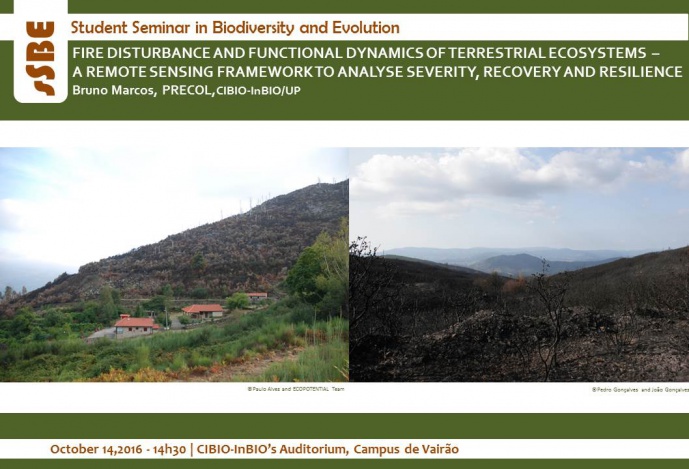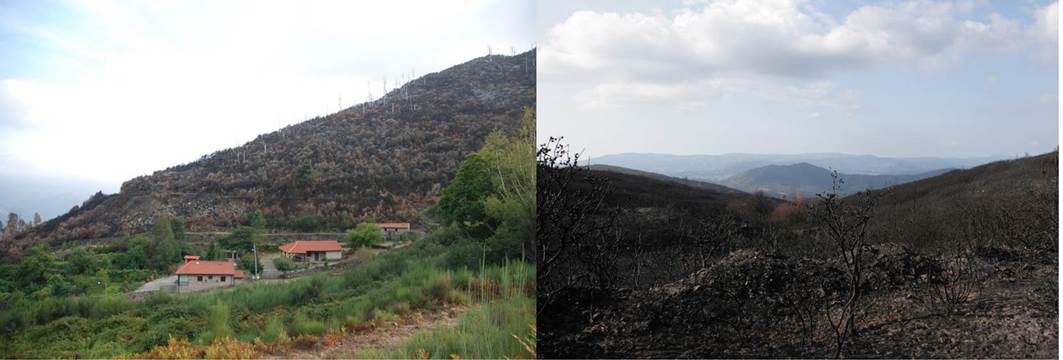FIRE DISTURBANCE AND FUNCTIONAL DYNAMICS OF TERRESTRIAL ECOSYSTEMS – A REMOTE SENSING FRAMEWORK TO ANALYSE SEVERITY, RECOVERY AND RESILIENCE

STUDENT SEMINAR IN BIODIVERSITY AND EVOLUTION

Wildfires are a major driver of change in terrestrial ecosystems worldwide, and particularly in Portugal. Ecosystems affected by recurrent fires are at risk of collapse or regime shifting. However, early-warning signals can be detected before critical transitions actually occur. Fire disturbances modify the matter and energy budgets of ecosystems, and detection of changes in ecosystem functioning may anticipate those in ecosystem structure. Thus, evaluating fire occurrence, severity, post-fire recovery and resilience through remote-sensing of ecosystem functioning is a promising path, since functional attributes have shorter time responses and are more directly connected to ecosystem services. Nonetheless, resilience assessments often do not account for ecosystem functional dynamics. Here we propose to develop and test an integrative methodology, based on remote sensing, to evaluate effects of fire disturbance on ecosystems, integrating key aspects of carbon, water, and energy fluxes, towards an effective paradigm shift in terrestrial ecosystems monitoring under global change.
Bruno Marcos graduated, and concluded the MSc degree, in Environmental Sciences and Technology, at the Faculty of Sciences, University of Porto. His main research interests encompass several topics related with monitoring diferent aspects of terrestrial ecosystems using earth observation, such as ecosystem functioning, disturbance regimes, and ecological resilience. He is beginning the second year of his PhD in Biodiversity, Genetics and Evolution at CIBIO-InBIO. His PhD thesis, in which this seminar is based, is being developed under the supervision of João Honrado and co-supervision of Domingo Alcaraz and Mário Cunha, in the scope of the PRECOL Group.
Image credits: Paulo Alves and ECOPOTENTIAL Team | Pedro Gonçalves and João Gonçalves